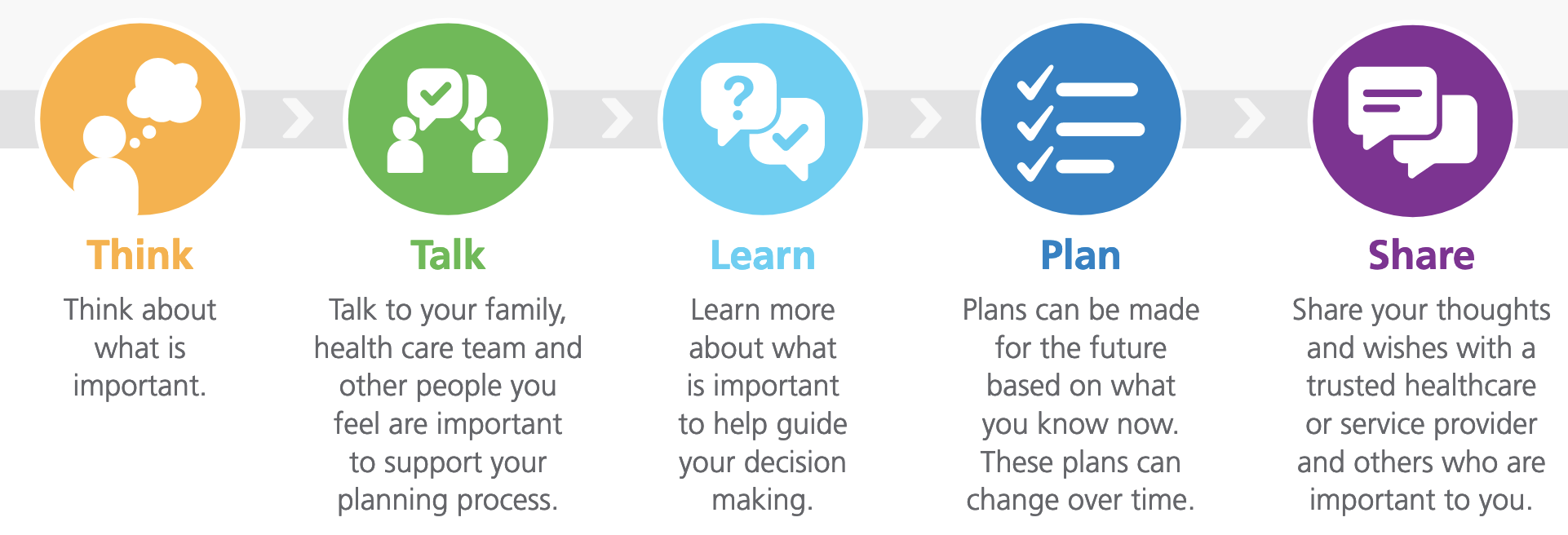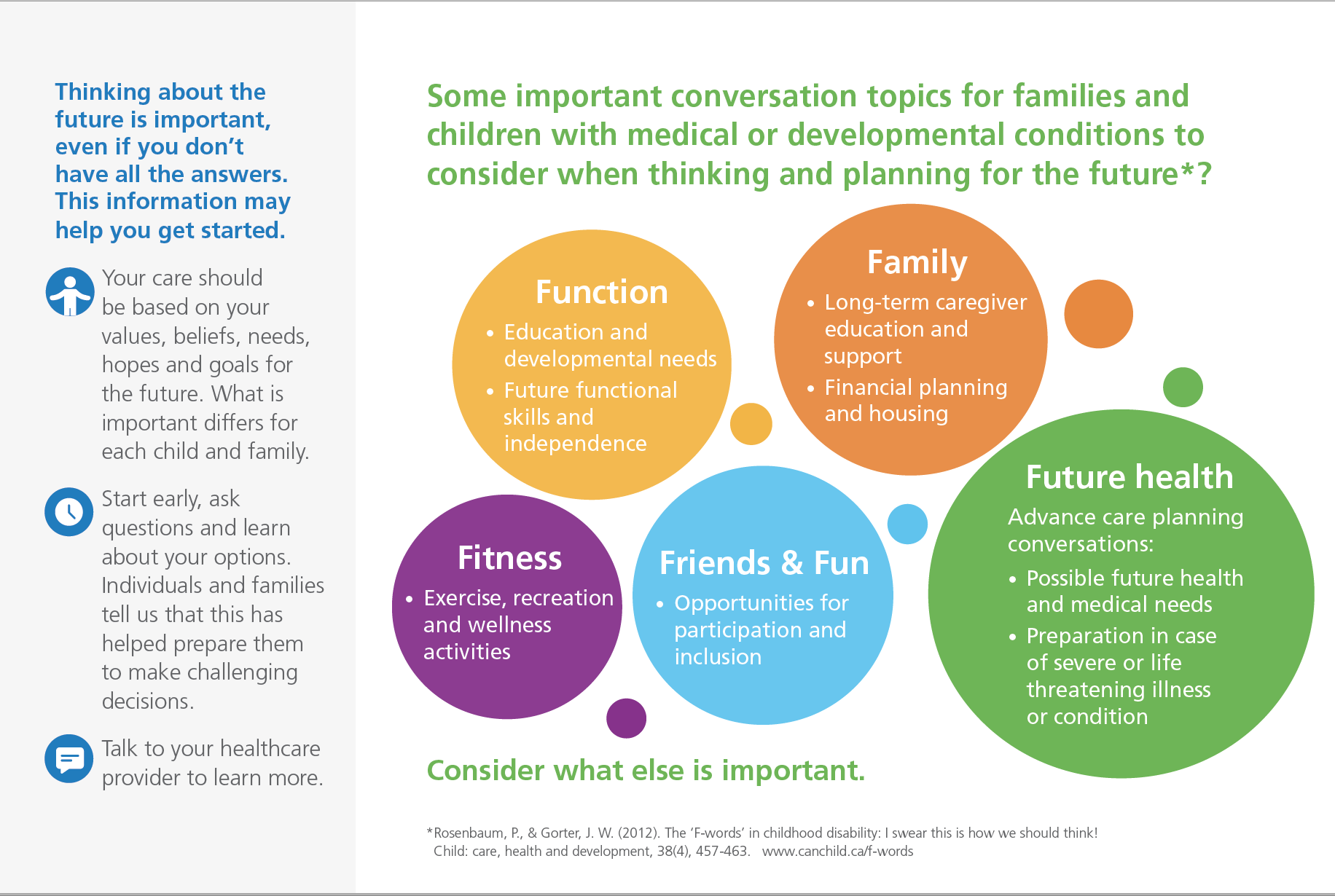Anaya is 15-years-old. She was diagnosed with osteosarcoma (bone cancer) when she was 10-years-old.
When she was younger, her parents made all of her healthcare decisions. But now Anaya is starting to learn and understand about her own illness and become involved in decision-making.
For decisions where Anaya is not capable, her parents will continue to make healthcare decisions. But Anaya should be involved as much as she can be.
Advance Care Planning for Anaya and her parents will include:
- recognizing the role of Anaya and her parents in the decision-making process
- on-going discussion of what to expect in the future with her illness
Jacob is a 9-year-old boy with severe neurologic impairment. He uses a wheelchair for mobility and a feeding tube for nourishment. Jacob lives at home with his parents and younger sister.
- Jacobs parents are his substitute decision-makers (SDMs).
- ACP can help them learn more about Jacob's illness so they can prepare for the future.
This will include thinking about:
- what kind of care needs Jacob will have in the future
- what to expect in the future with respect to his brain injury - whether it will remain the same, improve or worsen
Five Steps of ACP for Children and Adolescents

Thinking about what is important

What about wishes expressed by children and adolescents?
-
Although the wishes of a capable person under the age of 16 are not given the same degree of deference in the HCCA, the Supreme Court of Canada has ruled that preferences of these mature minors must be given sufficient weight as they mature and demonstrate stability of values. When a patient is incapable, then their SDM must decide on their behalf.
- The SDM is required to consider any prior capable wishes (wishes expressed by a person over the age of 16 when they were capable).
- When prior capable wishes are known and relevant to the situation, they must guide the SDM. When no prior capable wishes exist (ie. no wishes at all, wishes expressed by a person of any age while incapable or wishes expressed by the incapable person when they were capable, but less than 16 years old) the SDM must make a decision according to the best interest of the person.
- Among other things, the SDM should consider any relevant wishes shared by the incapable person when determining their best interests. These wishes do not determine the course of action on their own (as prior capable wishes do), but they should be taken into account by the SDM when arriving at the person’s best interests.
- In children or adolescents who never attainted or have lost the ability for verbal communication, SDMs may notice non-verbal cues.
Even though Jacob cannot talk, his parents believe that he’s telling them, in his own way, that he’s not happy with his current quality of life. Jacob always loved going to school and being with friends, but his teachers report that he sleeps most of the day, and when he’s awake he’s often uncomfortable and not very engaged. He rarely smiles anymore.
Capacity of children and adolescents
In Ontario since there is no age of consent; instead the capacity test is used. This is the same test for mental capacity for Ontarians regardless of age:
A person must have the ability to BOTH
1. Understand the information required to make a healthcare decision
AND
2. Appreciate how making that decision will affect them personally. Click here to learn more about capacity.
- While it is unlikely that Jacob will ever be capable of making his own healthcare decision, Anaya's capacity for decision-making is evolving.
- While capacity may be presumed in adults, the same cannot be translated to the pediatric and adolescent populations. Since capacity evolves with age, cognitive and emotional maturation, healthcare providers should continuously monitor for the development of capacity. For example, Anaya may have been incapable of consenting to the treatment plan for chemotherapy at the start, but after three rounds, she is now capable of deciding if she wants to complete the entire course of treatment.
- As a result of "growing-up" within the medical system, children with serious health conditions may learn and understand more complex health information than a child without the medical exposure.